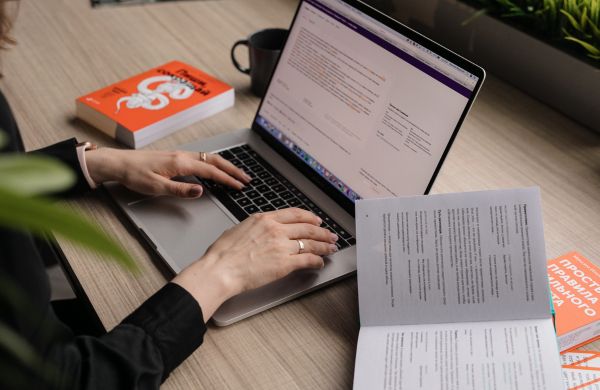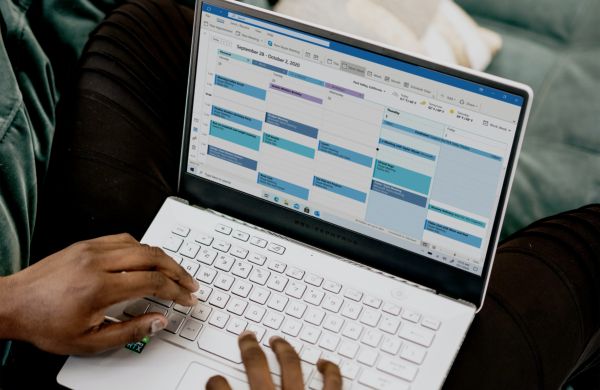
Navigating the world of background checks can feel like traversing a maze. You’re not alone. This article will shine a light on Level 1 background checks, a vital tool in the hiring process.
A level 1 background check is a basic review of an individual’s criminal and employment history, focusing on specific misdemeanors and job verifications. It offers a preliminary screening for organizations and employers to understand an applicant’s background without deep investigations.
You’ll discover what they include, why they matter, and how they work. Let’s clear up misconceptions and give you the facts. Let’s explore Level 1 background checks together.
Table of contents
- Understanding the Basics of a Level 1 Background Check
- The Importance of a Level 1 Background Check in Employment
- Who Requires a Level 1 Background Check?
- The Process of Conducting a Level 1 Background Check
- Factors Included in a Level 1 Background Check
- Benefits of a Level 1 Background Check
- Addressing Common Misconceptions About Level 1 Background Checks
- Limitations and Concerns
- Comparing Level 1 to Other Levels of Background Checks
- Conclusion
Understanding the Basics of a Level 1 Background Check
You’ve got to understand that a Level 1 Background Check primarily involves a state-only name-based check and employment history verification. It’s a fundamental step in the pre-employment background check process. You, as an employer, use it to ensure that a potential employee’s past doesn’t contain any surprises that could affect their suitability for the job.
The name-based check is a crucial component of this background check. It provides you with information on any criminal history tied to the potential employee’s name within a specific state. However, since it’s state-only, it mightn’t catch any criminal activity that occurred outside the state.
The employment history verification is another vital part of the Level 1 check. It confirms the potential employee’s work history, ensuring their resume is truthful and they possess the experience they claim to have.
The Importance of a Level 1 Background Check in Employment
As an employer, you’ll find that conducting a Level 1 Background Check is crucial in making informed hiring decisions. This type of background check is one of the most basic types of background checks that primarily focuses on criminal history checks. It’s a tool that aids in determining whether a prospective employee is suitable and safe for the workplace.
In the hiring process, you’re not only looking for someone who can get the job done. But also for someone who won’t pose a risk to your business. A Level 1 Background Check helps you achieve this by providing you with information about an applicant’s criminal history, if any. This is particularly important for positions that require high trust or involve vulnerable populations like children or the elderly.
In addition, a Level 1 Background Check can also assist in employment verification, confirming that the information provided by the applicant regarding previous employment is accurate. This is vital in ensuring you’re hiring a candidate who’s honest and trustworthy.
Who Requires a Level 1 Background Check?

When it comes to ensuring safety and maintaining integrity within various sectors, a Level 1 Background Check becomes a pivotal tool. But who exactly requires this type of check?
Employers and Job Sectors That Mandate It
In the realm of employment, ensuring that a potential employee is trustworthy and reliable is paramount. Employers often utilize background checks as a standard part of their hiring process.
Particularly, a Level 1 Background Check is commonly used to verify the criminal history of an applicant. Ensuring they have no severe criminal convictions that might be relevant to the job role.
Various job sectors, especially those involving direct contact with vulnerable populations, such as healthcare, education, and financial sectors, mandate this check. For instance, private school and charter school employers might require a check to ensure that no applicant has a criminal offense related to children or juvenile offenses.
Licensing Boards
Licensing boards also necessitate a Level 1 Background Check. Before issuing a license to professionals, such as healthcare workers, lawyers, or financial advisors. These boards must ensure that the individual has no criminal history that might jeopardize their professional conduct or harm clients.
This check might involve a criminal records check and verification of education and previous employment through employment verification and employment history checks. The background check policy of licensing boards often involves thorough background investigations to uphold the integrity of the professions they oversee.
Volunteer Organizations
Volunteer organizations, especially those that serve vulnerable populations like children, the elderly, or disabled adults, also require a Level 1 Background Check. Before accepting applicants for a volunteer opportunity, organizations want to ensure that the individual has no criminal convictions or arrest record that might pose a risk to those they serve.
For instance, athletic volunteers or athletic volunteer coaches in public schools or charter school settings might undergo a check to ensure they have no criminal offense related to juvenile offenses or sex offense. The background check requirement for volunteer positions is crucial to maintaining a safe and secure environment for all involved.
In all these scenarios, a Level 1 Background Check serves as a preliminary filter, ensuring that whether in a professional, licensed, or volunteer capacity, individuals have been vetted for any criminal history or other red flags that might disqualify them from a position or licensure.
This check, while basic, provides a foundational level of security and assurance in the application process, safeguarding the interests of employers, licensing boards, volunteer organizations, and the populations they serve.
The Process of Conducting a Level 1 Background Check

Before delving into the process, it’s important that you understand what a Level 1 Background Check entails and, at the same time, know how to conduct one effectively. A Level 1 background check primarily includes a state-only name-based check and employment history verification.
You’ll start by drafting a background check policy, ensuring it’s compliant with all federal and state laws. This policy should clearly outline the reasons for conducting background screenings, the nature of the screenings, and how the information will be used.
Next, you’ll need to find a reputable background check service provider. They’ll guide you through the application process, making sure all necessary permissions are obtained from the individual being checked. This provider will then conduct a criminal history background check, searching state databases for any records connected to the individual’s name.
After the background check provider has completed their work, they’ll compile the data into a report. You’ll then review this report, using it to make an informed decision about the individual’s suitability for the role.
Factors Included in a Level 1 Background Check
In a Level 1 background check, you’ll find that it typically includes specific factors such as criminal history, employment history, and personal references. Let’s delve deeper into these components.
The primary focus of Level 1 checks is the criminal records check. This involves a comprehensive review of your criminal convictions at county, state, and national levels. Whether you’ve committed felonies, misdemeanors, or other offenses, these will be under scrutiny. The aim is to ensure you pose no safety or security threats.
Next, your employment history forms an integral part of background investigations. Here, your past roles, job performance, reasons for leaving previous jobs, and any issues of misconduct are examined. This gives employers a clear picture of your work ethic and suitability for the role.
Personal references also play a crucial role. These provide insights into your character, reliability, and behavioral patterns outside of a work environment. A Level 1 background security investigation seeks to build a comprehensive profile that transcends basic public records.
Understanding the factors included in Level 1 background checks is crucial. In the next section, we’ll be addressing common misconceptions about Level 1 background checks.
Benefits of a Level 1 Background Check

Navigating through the hiring or licensing process can be a meticulous task, and implementing a Level 1 Background Check can offer numerous advantages to streamline this procedure.
Ensuring Safety and Security
First and foremost, the paramount benefit lies in ensuring safety and security within an organization or sector. Conducting a Level 1 Background Check helps in scrutinizing the criminal history of a prospective employee or applicant, thereby safeguarding the environment from potential threats or malicious intents.
This is particularly vital in sectors like education, where private school and charter school employers need to ensure that those interacting with children have no criminal convictions or arrest record that might pose a risk.
Verification of Credentials
In the professional world, the authenticity of an individual’s credentials is pivotal. A Level 1 Background Check aids in the verification of credentials, ensuring that the education, employment history, and other qualifications claimed by an individual are accurate and genuine.
This verification process is crucial to avoid the hiring of a wrong person and ensures that the candidate possesses the necessary skills and qualifications for the job or license.
It also involves employment verification to confirm the dates of employment and positions held in previous roles, ensuring consistency and reliability in the information provided by the applicant.
Reducing Risks Associated with Hiring or Licensing
Implementing a Level 1 Background Check significantly mitigates the risks associated with hiring or licensing. By thoroughly checking criminal records and verifying the authenticity of information provided. Employers and licensing boards can make informed decisions. Thereby reducing the likelihood of hiring or licensing an individual who might pose a risk to the organization or the public.
This not only safeguards the reputation of the entity but also ensures that they comply with legal and ethical standards, such as adhering to background check laws and ensuring background check clearance.
In essence, a Level 1 Background Check acts as a protective shield, safeguarding organizations from potential threats and ensuring the credibility of the hiring process or licensing. It is a fundamental step towards maintaining a secure, competent, and credible operational environment. Thereby fostering trust and reliability among stakeholders and the public alike.
Addressing Common Misconceptions About Level 1 Background Checks
You’ll often find your understanding of Level 1 background checks clouded by common misconceptions, so let’s start clearing those up.
One major misconception is that all background checks are the same. That’s not true. Different background screening requirements apply depending on the job and jurisdiction.
Level 1 checks, for instance, don’t delve as deeply as other levels. They primarily involve employment history checks and a search of criminal history within the state. They don’t typically include a full, nationwide criminal search.
Another misunderstanding is that background check laws are universal. They aren’t. Laws vary by state and even by city, so it’s crucial to know the laws in your specific location.
Many also mistakenly believe that Level 1 checks offer a complete picture of an individual’s past. But these background check reports are limited in scope. They provide basic information, but not an exhaustive account of a person’s background. It’s a starting point, offering a foundational understanding of a person’s history.
Limitations and Concerns

While Level 1 Background Checks are pivotal in various sectors for ensuring safety and veracity in hiring and licensing. They are not without their limitations and concerns.
Possible Inaccuracies in Databases
One of the significant limitations pertains to the possible inaccuracies in databases used for conducting these checks. Criminal records check databases might contain outdated or incorrect information, which can lead to inaccurate results in the background report.
For instance, a criminal history record check might not reflect recent changes or updates in an individual’s record. Potentially affecting the background check reports and the decisions made based on them. This could inadvertently harm an individual’s job application or license application. Even if they are eligible or have had their record expunged.
Privacy Concerns
Privacy concerns are another critical aspect that needs to be addressed. Background checks often delve into sensitive areas of an individual’s life, including their criminal history, credit reports, and employment history checks.
There is a constant need to balance thorough background investigations with respect for privacy, ensuring that the information is used ethically and legally.
Consumer reporting agencies must adhere to background screening laws and ensure that the information obtained is used solely for the purpose intended and not misused in any manner.
Potential for Discrimination
Lastly, there is a potential for discrimination in the use of background checks. Certain information obtained, such as criminal convictions or arrest record, might disproportionately affect certain demographic groups, leading to unintentional bias or discrimination in the hiring process.
Employers and licensing boards must be cautious to ensure that the background screening policy and decisions based on background screenings are applied uniformly and do not inadvertently discriminate against particular individuals or groups. This involves adhering to background check laws and ensuring that decisions are made fairly and equitably.
In conclusion, while Level 1 Background Checks are indispensable in various contexts. It is crucial to approach them with a cognizance of their limitations and potential concerns. Ensuring that they are conducted and utilized ethically, legally, and fairly across all sectors and for all individuals.
Comparing Level 1 to Other Levels of Background Checks

Navigating through the various levels of background checks, it’s pivotal to comprehend the distinctions and applications of each. A Level 1 background check, often utilized for preliminary screenings, encompasses a basic criminal history and employment verification.
Contrastingly, Level 2 background checks delve deeper, incorporating fingerprinting and is notably utilized by law enforcement agencies to scrutinize an individual’s criminal record meticulously. This level is pivotal for positions entailing security concerns or roles involving vulnerable demographics. Potentially exploring credit reports and probing into civil lawsuits or tax liens.
Level 3 background checks extend even further, encapsulating international records and meticulous financial checks. Typically employed for high-ranking positions or roles involving substantial financial management or legal advice. Consumer reporting agencies might be engaged to furnish a detailed consumer credit report, safeguarding the prospective employee’s financial stability.
Human resources departments meticulously navigate these levels, ensuring adherence to background check laws and provisions of law. While also ensuring that the background check service provider complies with background screening laws and that the background screening report aligns with background screening requirements.
In essence, each level of background check, from Level 1 to Level 3, is crafted to furnish varying depths of insight into an applicant’s history and reliability. Facilitating informed hiring decisions across various sectors, whether it be athletic coaches or school staff in public schools.
Conclusion
So, you’re on the edge of your seat, curious about what a Level 1 background check entails? Well, it’s crucial for employment, including criminal history, past addresses, and employment verification.
But don’t be misguided by common misconceptions. Each check isn’t as invasive as you might think, yet it’s comprehensive enough to provide a clear picture. It’s a delicate balance, a necessary part of today’s professional world.